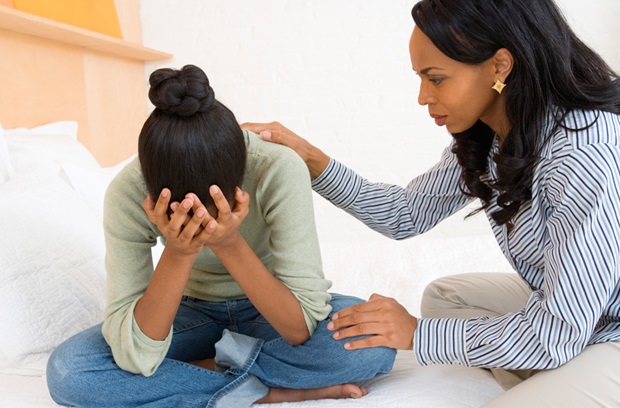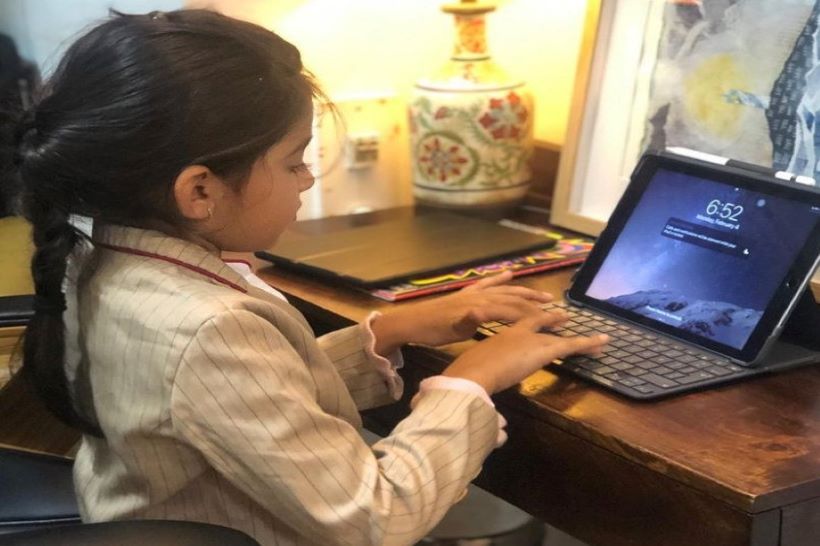Do you weigh yourself and talk about all the fad diets in front of your kids often?
Do you criticise body types?
Do you use labels like fat or thin?
Do you realise how this may negatively impact your child’s image of their own body?
Parents play a big role in their children’s lofe; especially, when it comes to the shaping of their self-image. In a world where social media boasts unrealistic beauty standards and promotes degrading self-worth, it is the parent’s responsibility to build their children back up again. Teenagers may become overtly conscious and try to curb their weight by resorting to dieting or shying away from indulging in their favourite treats.
Body dysmorphia and eating disorders are at an all-time high- and parents don’t know how to help!
Keep These In Mind When You Talk To Your Teenager About Their Body Image
1. Create A Trust Triangle Before You Start This Conversation. Go Slow!
In this case, forcing your child to trust you can do more harm than good. Instead, try being subtle and feel them out. When they seem like they may want to talk, make sure to help them understand that everyone is born with a different body type and that’s okay!
All growing children need to understand that people who are on the heavier side may be fit while very thin people might not be fit. In other words:
Unhealthy does not mean heavy!
While obesity does pose some major health risks, people do come in all sizes and that is the primary thing to keep in mind when having any conversations about body image.
2. Build them up and avoid body-shaming at home
You have to be your child’s biggest cheerleader- your opinions matter more than you think.
Therefore, the best way to give them exposure and having a healthy relationship is to get rid of all body-shaming conversations at home. That doesn’t only mean that you avoid making off-hand comments about your child’s weight, like, “don’t eat or you’ll get fat”, it also means avoiding commenting about anyone’s weight including your own. Some comments may come across as being the equivalent of fat=bad.
3. Be the right role model
Instead of equating eating well to preventing weight gain, equate it to becoming fit and healthy.
The result of exercising, sleeping well, having a balanced diet, and hydrating should all chalk up to leading a healthy and well-balanced lifestyle. Make sure you are the right role model for your kids before you expect them to believe you.
4. Don’t stress the scale
A lot of us have a habit of hopping onto the scale every morning and whining about the few grams we gain after a weekend. But you forget that your children are watching you. Parents must remember that this may lead to many eating disorders.
5. Use positive language
Rather than talking about the physical attributes of your child or others, instead, praise his or her characteristics such as strength, persistence, and kindness. Don’t make or allow hurtful nicknames, comments, or jokes based on a person’s physical characteristics, weight, or body shape.
There’s no protecting your teenagers from the cultural stigmas around the ideal weight. Most movies, fashion magazines and celebrities on social media scream the same message: fat equals bad! Even though you may be unable to protect your children from this media messaging, you can always be there to hear them out, build them up, and guide them to revere health more than weight.
If you have had the talk about body shaming and being body positive with your child, we would love to know. Write to us at contribute@kidsstoppress.com and help fellow moms manoeuver through this difficult phase.


















